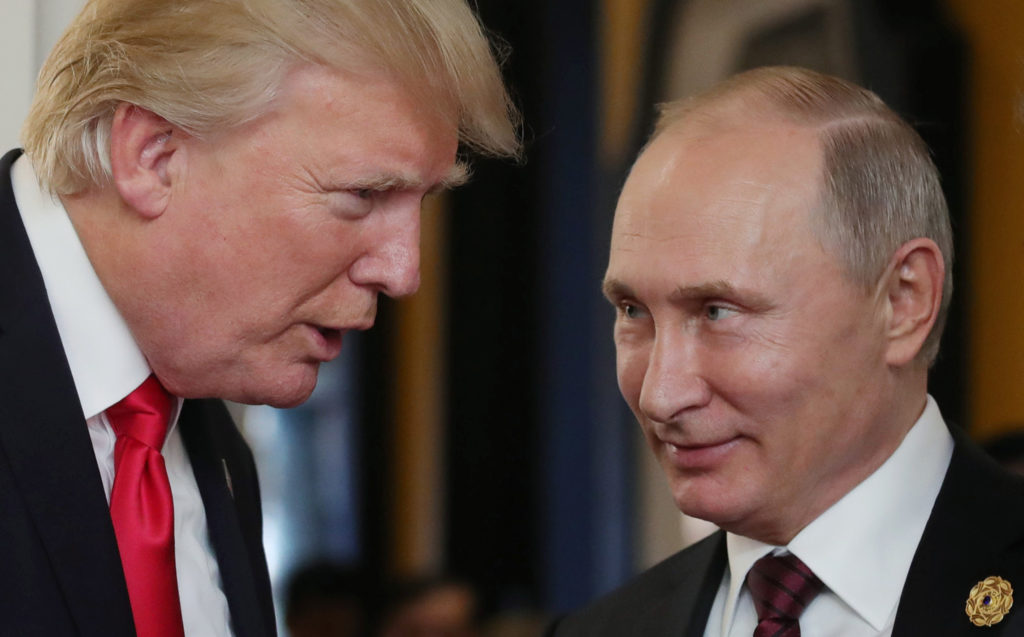U.S. President Donald Trump is pushing for a swift resolution to the war in Ukraine, unsettling Washington’s European allies by excluding them and Ukraine—from early negotiations with Russia while shifting blame for the 2022 invasion onto Kyiv. These political concessions to Moscow could also carry significant economic benefits.
At a critical moment, Russia faces two unattractive choices, according to Oleg Vyugin, former deputy chairman of the Russian central bank.
“Russia can either stop inflating military spending as it presses to gain territory in Ukraine,” he said, “or maintain it and pay the price with years of slow growth, high inflation, and falling living standards—all of which carry political risks.”
While government spending often stimulates growth, Russia’s focus on weapons manufacturing at the expense of civilian industries has overheated the economy. Interest rates have climbed to 21%, slowing corporate investment, while inflation remains stubbornly high.

“For economic reasons, Russia is interested in negotiating a diplomatic end to the conflict,” Vyugin noted. “(This) will avoid further increasing the redistribution of limited resources for unproductive purposes. It’s the only way to avoid stagflation.”
Though an immediate reduction in defence spending is unlikely—given that it accounts for nearly a third of Russia’s budget—the prospect of a peace deal could ease broader economic pressures, potentially leading to sanctions relief and even the return of Western businesses.
Easing the Economic Burden
“The Russians will be reluctant to stop spending on arms production overnight, afraid of causing a recession, and because they need to restore the army,” said Alexander Kolyandr, a researcher at the Center for European Policy Analysis (CEPA).
“But by letting some soldiers go, that would take a bit of pressure off the labour market.”
Labour shortages, driven by wartime recruitment and emigration, have pushed Russian unemployment to a record low of 2.3%. Kolyandr added that easing inflation could be another benefit, as peace talks may deter Washington from enforcing secondary sanctions on businesses from countries like China, simplifying imports and lowering costs.
Financial markets are already responding. The rouble surged to a near six-month high against the dollar on Friday, buoyed by optimism over potential sanctions relief.
While Russia’s economy rebounded strongly from a brief contraction in 2022, authorities expect growth to slow from 4.1% in 2024 to around 1-2% this year. The central bank remains cautious about cutting rates, citing excessive demand growth outpacing production capacity.
When maintaining the 21% interest rate on February 14, Central Bank Governor Elvira Nabiullina explained:
“It is very important for us that the budget deficit… remains as the government is currently planning.”
Russia’s budget deficit soared to 1.7 trillion roubles ($19.21 billion) in January alone, a staggering 14-fold increase year on year, as Moscow frontloaded 2025 spending.
Carrot and Stick
The war has created economic winners and losers within Russia. Military-linked industries have seen wages rise sharply due to fiscal stimulus, while civilians struggle with soaring prices for basic goods.
Some businesses have seized opportunities amid shifting trade flows and reduced competition. Melon Fashion Group, for instance, has expanded significantly, doubling the average size of its stores since 2023.
For others, however, high interest rates pose major challenges.
“At current lending rates, it is difficult for developments to launch new projects,” said Elena Bondarchuk, founder of warehouse developer Orientir. “The once-wide circle of investors has narrowed, and those who remain are also dependent on banks’ terms.”
Russia faces additional risks, including falling oil prices, budgetary strain, and rising corporate debt. While Trump has dangled the possibility of concessions over Ukraine, he has also warned of further sanctions if Moscow fails to cooperate.
“The United States has significant leverage in terms of the economy, and it’s why the Russians are happy to meet,” said Chris Weafer, CEO of Macro-Advisory Ltd.
“The United States is saying: ‘We can ease sanctions if you cooperate, but if you don’t, we can make it a hell of a lot worse.’”


 Trending
Trending 